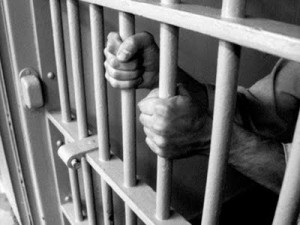 As one of the career paths in which individuals can truly make a difference in the lives of others, social work is a profession devoted to helping people function at the optimal level in their environment through direct services to improve social conditions.
As one of the career paths in which individuals can truly make a difference in the lives of others, social work is a profession devoted to helping people function at the optimal level in their environment through direct services to improve social conditions.
While many social workers decide to place their commitment to efforts at hospitals, mental health clinics, nursing homes, private practices, schools, substance abuse centers, and military bases, there is a rising need for social workers to fulfill positions in prisons. According to the National Association of Social Workers (NASW), more than 600,000 inmates are released from prison in the United States annually and need the assistance of a social worker to help them navigate the social services system to avoid relapse into crime.
For those individuals with a background in both social work and criminal justice, read on to find a complete job description for prison social workers and determine whether this rewarding career is a good match for you.
What is a Prison Social Worker?
Also commonly referred to as correctional social workers, prison social workers are qualified and trained mental health professionals who are employed within the criminal justice system with the purpose of reducing rates of re-arrest in the future. Prison social workers use their knowledge and skills to prevent recidivism by addressing the psycho-social issues, providing education, and offering social service recommendations to successfully reintegrate into the community upon release. In addition to the standard prison or correctional facility work environment, these specialized social workers also find employment in rape crisis centers, police departments, court systems, juvenile detention centers, and other similar correctional settings.
Daily Responsibilities of Social Workers in Prisons
Within the correctional prison system, social workers have a set of unique job responsibilities that are strongly focused on the rehabilitation. In the daily life of a prison social worker, they are usually responsible for performing psychological assessments to determine inmates' level of mental health functioning, evaluating the presence of mental health or substance abuse disorders, providing individual or group counseling sessions, teaching inmates life skills in rehabilitation groups, and preparing inmates to reintegrate into their lives beyond bars. Along with the clinical duties, correctional social workers often must complete administrative tasks, including writing treatment plans, organizing thorough notes, maintaining detailed files, and communicating with other criminal justice professionals on inmates' cases.
Education and Training Requirements
While the specific educational requirements for prison social workers vary considerably by setting, these mental health professionals normally must possess a Bachelor of Social Work (BSW) or Masters in Social Work (MSW) degree for employment. Since working directly with inmates can be a difficult and frustrating task, many employers prefer job candidates who also possess specialized training in criminal justice and/or forensic social work. After obtaining a social work degree, it is highly recommended that individuals interested in working within corrections should enroll in a certificate program in forensic social work to gain more hands-on experience providing mental health services to inmates.
Overall, social work within the correctional system can be challenging for many mental health professionals who are not aware of the unique situations often experienced when dealing with prisoners and how to approach the instances with professionalism. Prison social workers must have strong communication and management skills to set interpersonal boundaries, but still be compassionate and dedicated to helping guide inmates. However, correctional social workers have the gratifying reward of helping prisoners make changes to assume more positive roles in their families and communities.
